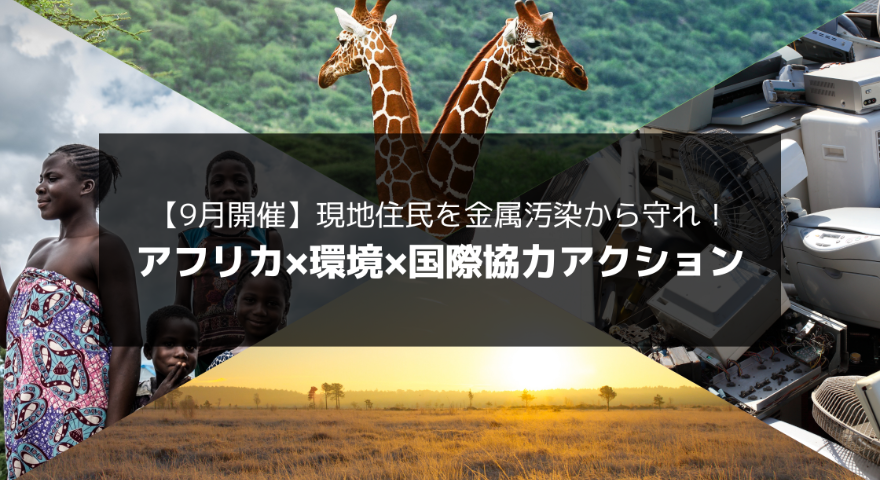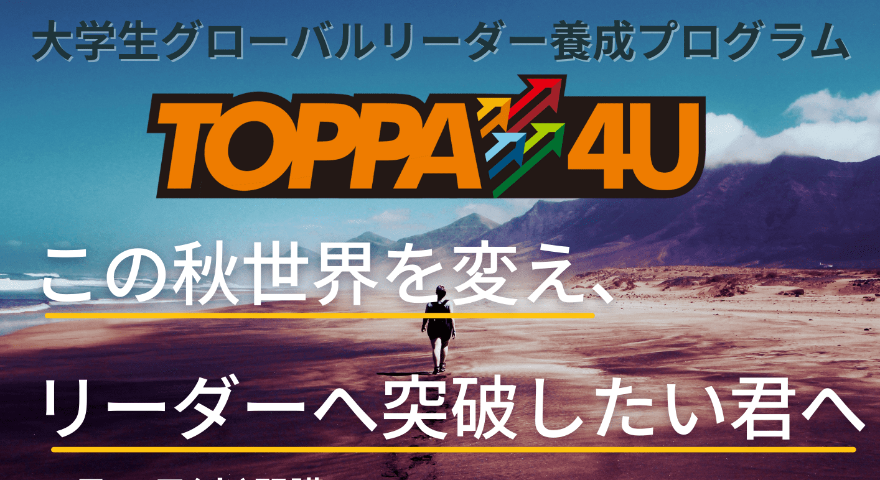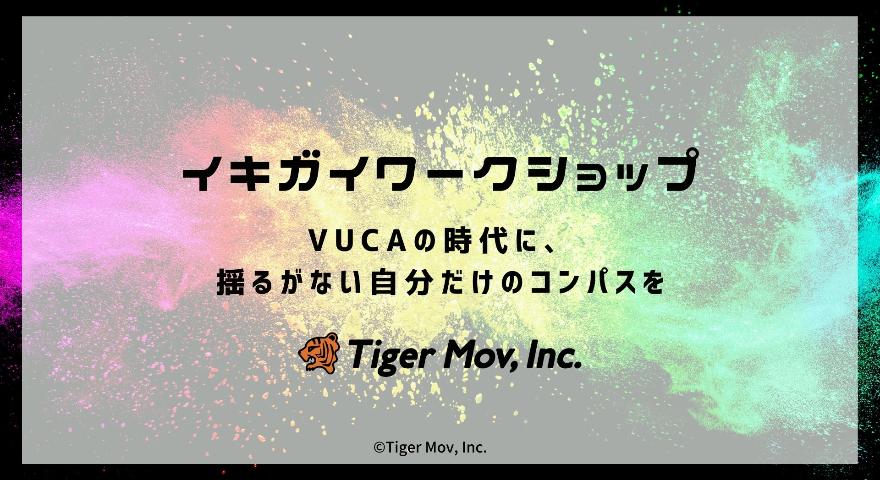TOP/海外インターンシップを見つける/【オンライン】Africa Rising -スタートアップエコシステム創造のためのブートキャンプ/Boot camp for Startup Ecosystem Creator
【オンライン】Africa Rising -スタートアップエコシステム創造のためのブートキャンプ/Boot camp for Startup Ecosystem Creator
スタートアップの成功の鍵、エコシステムに迫る。スタートアップエコシステムに関わる、アクセラレータ、VC、インキュベータなどに関わっている、将来関わりたい方のための特別プログラム。今一番ホットなアフリカ市場をテーマにエコシステムの基礎から、実践的なワークまで取り組みます。
- 期間:2ヶ月以上
研修内容
Startup success is more than just about good ideas, but about the ecosystem quality as well.
スタートアップエコシステムに関わる、アクセラレータ、VC、インキュベータなどに関わっている、将来関わりたい方のための特別プログラム。
今一番ホットなアフリカ市場をテーマにエコシステムの基礎から、実践的なワークまで取り組みます。
アフリカのエコシステムのプレーヤーを実際に交流しながら、課題ベースに取り組む1か月集中ブートキャンプ。
南アフリカにてアクセラレータープログラムのメンターを勤める講師が、あなたの挑戦をサポートします!
なぜ、アフリカでスタートアップ・起業家エコシステムが重要か
地球のラストフロンティアをいわれるアフリカは、世界から注目されています。
しかし、アフリカというと貧困や紛争などの課題も抱えています。そうした課題の一つが高い失業率。
人口爆発ともいわれますが、アフリカの人口は年々増加しています。それと共に、若者層の失業率は大きな問題の一つなのです。そこで求められるのは、アフリカ人の若者がアフリカ発のビジネスを生み出していくこと。アフリカの地で、スタートアップエコシステムが創り出され、雇用の生み出すことが重要です。
南アフリカのエコシステムプレイヤーのサポートの下、基礎から実践までオンラインで
南アフリカを拠点に、アクセラレータープログラムの運営やメンターとして活躍している現地ビジネスパーソンによる特別レクチャーおよびフィードバックをベースに、オンライン上でインプットとアサイメント(アウトプット)に取り組んでいただきます。
プログラムコンテンツ:Point/Feature of the program
※週10~20時間ほど(1か月で40-80時間ほど)のワーク時間が必要です。
The program is built to require about 10 - 20 hours per week as a part-time engagement over a month. The means a total of at least 40 - 80 hours distributed across the following participation mediums:
- Lectures (10%)
- These are live webinars whereby the participants part takes in a discussion-based learning environment where they are taught the fundamentals of entrepreneurship ecosystem development, the various aspects of entrepreneurship theory and case studies are discussed.
- Content (10%)
- These are pre-recorded videos of presented content related to specific case studies, experiential narratives of entrepreneurship ecosystem interventions and startups
- Research (20%)
- These are provided for coursework and reading material that the participant will analyse and synthesise written outputs.
- Interviews (10%)
- The participants are advised to find contacts to reach out to and conduct field surveys and research through interaction and interviews. These interviews are based on the achievements that the participant wishes to gain out of the program.
- Assignments (40%)
- These are application-based tasks that the participant builds in the process of the program and after the program. During the program, they develop the frameworks and tools that they want to use and do in the ecosystem field. Then after the program, they join a network of alumni that continue to engage and receive support.
- Networking (10%)
- This is an important aspect of ecosystems. Whereby knowledge, opportunities and finance can flow depending on the efficiency of networks. Therefore the participants are engaged in a during program community and post-program community that continues to provide networking opportunities and support.
プログラムのゴール:Goals of the program
- ■エコシステムの要素・複雑性への理解を深める:Develop an understanding of the components and the complexity of entrepreneurship ecosystems
- ・エコシステムプレイヤーのプロファイリング:Profiling of ecosystem players
- ・エコシステムのマッピング:Mapping ecosystems
- ・複雑性とネットワーキングの理論:Complex theory and network theory
- ・エコシステムのコア要素:Core aspects of entrepreneurship ecosystems
■理論的および実践的なインサイトの習得:To gain theoretical and practical insights when it comes to developing the entrepreneurship ecosystem
■アクセラレーション/インキュベーションプログラムをデザインするための基本的な能力とフレームワークの習得:Develop foundational capability and framework to design an acceleration/incubation program
■自分の興味、強み、現在の仕事に応じて、実際の効果的な部分を設計する:Design parts of an actual and effective that is contextual to your interests, strengths and current work
身に付く力・得られる経験
- ■エコシステムの基礎と理論を理解する:Entrepreneurship ecosystem fundamentals and theory
- Learning about the foundational aspects of entrepreneurship and startup theory. This is in the different ways in which entrepreneurship is defined and categorised from technopreneurship, social entrepreneurship and corporate entrepreneurship.The various elements that qualify startups and stages of startups. How these aspects interact in a network of resources that forms the entrepreneurship ecosystem.
- ■エコシステムの例とケーススタディを理解する:Entrepreneurship ecosystem examples and case studies
- Entrepreneurship ecosystems are very contextual and path dependent in their development. Therefore reviewing case studies and examples from different contexts enriches one’s scope of understanding and studying new ecosystems.
- ■南アフリカのエコシステムのプレイヤーや起業家の声に触れる:Entrepreneurship ecosystem interventions in South Africa, Entrepreneur voices
- This is learning real-life and practical applications of entrepreneurship, startups and entrepreneurship ecosystem advocates in order to appreciate how it overlaps with theory and how it differs compared to theory, especially considering the South African, and emerging markets’ context.
- ■アクセラレーションやインキュベーションに必要な要素を理解する:The components of an acceleration and incubation program
- These are some of the most popular and famed enablers within the startup ecosystem. They often play a central role next to entrepreneurship in order to increase ecosystem effectiveness. However because of their central they are also often liable to fault for poor performing ecosystems. They themselves are also often entrepreneurial, with difficult business models, in Africa, and take on multiple roles in the ecosystem.
- ■アクセラレーターとインキュベーターのためのコンテンツ開発:How to develop content for accelerators and incubators
- When looking closer at the functions and core services of these, it involves capacity development, network access and funding. What do these mean in an incubator context and in an accelerator context. In our context of what we want to achieve what does it mean?
- ■エコシステムの役割ごとの最適なビジネスモデルを理解する:The appropriate business model for their role in the ecosystem in relation to their ecosystem
- Understanding the options for sustainability can have a pivotal impact on the success of an ecosystem player. These are largely driven by data and networks, therefore we can learn about data points to collect, how to present it and what kind of marketplaces to connect with in order to develop sustainability and income.
こんな人を求めています
・スタートアップエコシスムに興味がある:People who are interested in Startup Ecosystem
・アクセラレータープログラムをつくりたい:People who want to start the accelerator program
・VCやエンジェル投資に関わっている:People who are in Corporate Venture Capital, People in VC’s and angel investors
・アフリカに投資したい:People who want to invest in Africa
・アフリカのスタートアップに関心がある:People who are interested in startups in Africa
・英語で課題をやりきる能力・やる気がある
募集要項
- 研修先国
-

- 研修先都市
- オンライン
- 研修期間
2020年6月1日~6月28日
- 研修日数、時間
Week 1:
Day #
Theme: Entrepreneurship theory and ecosystem theory. Assignment: Ecosystem role.
Day 1 (Mon 1 June)
Introductions, overview and foundations
Day 2
Reading & goal setting workshop
Day 3
Reading & goal setting
Day 4
Lecture and Assignment 1
Day 5
Assignment 1 & goal setting
Day 6
Lecture & Webinar
Day 7
Content & Assignment 1: Submit
Week 2:
Day #
Theme: Entrepreneurship ecosystem interventions in South Africa, Entrepreneur voices
Day 8 (Mon 8 June)
Lecture & Content
Day 9
Content & Assignment 2
Day 10
Assignment 2: Research and Interviews
Day 11
Assignment 2: Research and Interviews
Day 12
Assignment 2: Research and Interviews
Day 13
Assignment 2: Research and Interviews
Day 14
Lecture and Assignment 2: Research and Interviews (Discussion and engagement)
Day 15
Lecture and Assignment 2: Research and Interviews (Submit)
Week 3:
Day #
Theme: Design ecosystem program and acceleration content
Day 16 (Mon 15 June)
Lecture (design process) and Assignment 3: Design program and content
Day 18
Assignment 3: Design program and content
Day 19
Assignment 3: Design program and content
Day 20
Webinar & Assignment 3: Design program and content
Day 21
Assignment 3: Design program and content
Day 22
Lecture & Assignment 3: Design program and content
Day 23
Assignment 3: Design program and content (engagement and discussion) (Submit checkpoint 1)
Week 4:
Day #
Theme: Market and ecosystem feedback and iteration
Day 24 (Mon 22 June)
Assignment 3: Design program and content (market engagement)
Day 25
Assignment 3: Design program and content (market engagement)
Day 26
Assignment 3: Design program and content (Check-in engagement) (Receive comments for checkpoint 1)
Day 27
Assignment 3: Design program and content (market engagement)
Day 28
Assignment 3: Design program and content (market engagement)
Day 29
Assignment 3: Design program and content (Presentation, discussion and feedback)
Day 30
Closing lecture, presentation, discussion and feedback
- 費用
参加費:(税抜)200,000円
(学割適応)150,000円
※初回特別価格
- 必要なスキル・資格
・英語力(資料の読み込み、ディスカッション、プレゼンテーションが可能なレベル)
・スタートアップエコシステムやアフリカへの関心があること
・1か月間コミットできること
主催者紹介
---------------------------------------------
主催:タイガーモブ株式会社
--------------------------------------------

・中東アフリカ担当 伴優香子(ばん・ゆかこ)
国際基督教大学教養学部アーツ・サイエンス学科卒。経済学・国際関係学専攻。学生時代、中東地域の学生と交流する学生団体の代表を務め、2014年にはイスラエルのキブツで就労。キブツ滞在時に、現地でガザ紛争の一部始終を体験する。大学卒業後、コンサルティング会社に入社。公共コンサルティング本部にて、公共制度輸出案件や海外人材採用活動等に携わる。タイガーモブでは、中東アフリカ及び新規事業を担当。南アフリカ共和国からのリモートワークに挑戦している。
・Mentor/ Organizer: Buntu Majaja (DUYO)
南アフリカ・ヨハネスブルグを拠点に、起業家育成や教育に関わるプロジェクトに関わる。現在は、起業家向けのデジタルサービスや教育プロジェクトに携わる。シード/シード以前のスタートアップ向けのアクセラレーションプログラムや、シード期以降のスタートアップ向けのアクセラレーションプログラムのメンターを担当している。
【学歴】
・プレトリア大学(化学工学)
・プレトリア大学 大学院( PDBA
・ Wits Business School (起業家育成、新規事業創出
【職歴】
・ A.T. カーニー(ヨハネスブルグ)
・ Research Institute for Innovation and Sustainability
・ DUYO(創業者・代表)
Buntu Majaja has enterprised since university. He took a background in chemical engineering into the business world as a strategy and innovation consultant. He is passionate about education and entrepreneurship as a nexus for innovation where he has studied and worked with over 1000 entrepreneurs. He has been on two startup journeys and although leaving them with failures also left with personal growth.
Today he runs a business: DUYO.co.za, based in Johannesburg South Africa, that builds digital services for entrepreneurship and education development. He is a Non-Executive Director at the SA Innovation Summit and he is author of "Starting your startup in 90 days". He holds a Chemical Engineering undergraduate degree (University of Pretoria), a Post-Graduate Diploma in Business Administration (Gordon Institute of Business Sciences) and a Masters in Management specialisation in Entrepreneurship Ecosystems and New Venture Creation (Wits Business School).
参加者の声
関連するインターンシップ情報

【残り2枠!】現地住民を金属汚染から守れ!アフリカ×環境×国際協力アクション...
期間 1週間以下

【9月開講】PPA4U ソーシャル・ビジネスプログラムー9/1〆切
期間 2~3週間,2ヶ月以上,3ヶ月以上

寅年を機に野生のトラのことを考えアクションを起こそう。WWFブータン&野生動...
期間 1週間以下

【8月20日開催】IKIGAIワークショップで自分の居場所を確認し、リスタートしよ...
期間 1週間以下,日数・時間が相談可

【7/15-17 満員御礼!】インタビューで学ぶウクライナとロシア―対話を通して、...
期間 1週間以下




